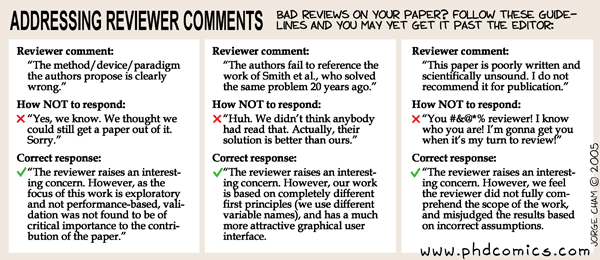Asociación Europea de Lenguas para Fines Específicos
14th International AELFE Conference
Developments in professional/academic communication and implications for language education and research – Bucharest, Romania, 25 – 27 June 2015
Conference venue: Academia de Studii Economice (ASE), Piața Romană 6
CONFERENCE ANNOUNCEMENT & CALL FOR PAPERS
Registration link
In the context of growing professional and academic mobility, in parallel with the trend towards the internationalization of Higher Education and emerging new channels for academic and research communication, education and research in the field of languages for professional and academic purposes have acquired new roles. This international conference, jointly organised by AELFE (the European Association of Languages for Specific Purposes), the Romanian Association for Quality Language Services QUEST and the Bucharest University of Economic Studies (ASE), aims to bring together researchers, academics, language professionals, educational policy makers, as well as academics and experts in other domains, to discuss the current developments of professional/academic communication and their implications for language education and research, and education/language policies and planning.
Confirmed Plenary Speakers:
Maurizio Gotti (University of Bergamo, Italy)
Karen Bennett (University of Lisbon, Portugal)
Christine Feak (University of Michigan, USA)
Nigel Harwood (University of Sheffield, UK)
Richard Rossner (International Association Eaquals, UK)
Thematic strands:
1. Research in the field of languages for professional and academic purposes
2. Language and culture learning for better professional and academic performance in a global context
3. Innovative practices in LSP teaching and learning
4. English / French / German as media of instruction and academic communication: challenges and
opportunities of internationalisation
5. Revisiting teacher competencies and professional development
6. The Quality dimension of language education and language planning in Higher Education / Adult Education
7. Translation studies – interconnections between research, the relevance of academic programmes, and performance quality.
Conference languages: English, French, German
Time frame:
Thursday, 25 June, from 9.00 to 18.00: plenaries and parallel sessions; conference dinner at 19.30;
Friday, 26 June, from 9.00 to 17.00: plenaries, parallel sessions, panels, conference closing;
Saturday, 27 June: trip outside Bucharest for those interested.
SUBMISSION OF ABSTRACTS
We invite contributions in the form of paper presentations or posters on any of the above topics (but not restricted to them). Please submit your proposal in EN, DE or FR, saved as Word.doc, .docx, or .rtf, attached to an email to aelfe2015@gmail.com, by 15 March 2015,
Paper presentations will consist of a 20-minute talk followed by 10 minutes for questions and discussion. Especially welcome will be paper submissions presenting research (either complete or in progress) related to the conference topics. In addition, they should be interesting and academically of good quality. Poster abstracts are particularly welcome if they report on innovative research and/or on projects relevant to at least one of the conference topics.
The Proposal should include:
the title of the paper / poster
the name(s) of the author(s), their affiliation and contact details (postal and email address)
the Abstract (300 words)
the Speakers’ Biodata (max. 50 words).
In addition, please indicate:
whether it is a proposal for a paper presentation or a poster
the language of the presentation (EN, FR or DE)
the thematic strand it would fit best.
Abstracts should include a brief outline of the research/project context and clearly indicate the objectives, method(s) and results. All abstracts will be peer-reviewed by the conference programme committee and AELFE panel coordinators.
Publication opportunities: in peer-reviewed outlets, such as the volume with conference proceedings in the series “Languages for Specific Purposes and Teacher Development” (ISSN 2285–1623), or in journals e.g. Synergy (www.synergy.ase.ro ) or Iberica (www.aelfe.org ).
Participants interested in displaying copies of their work (books, teaching resources) or project materials should contact the organisers at aelfe2015@gmail.com.
KEY DATES:
Deadline for abstract submission: 15 March 2015
Notification of acceptance: 15 April 2015
Deadline for early-bird registration: 15 May 2015
Registration deadline to guarantee inclusion in the conference programme: 1 June 2015
REGISTRATION & CONFERENCE FEE:
The conference fee includes: the conference folder, book of abstracts, refreshments and snack lunch on both conference days, and the conference dinner on Thursday. Please note that it does not include
accommodation and the trip on Saturday.
Early bird Participants who are not members of AELFE or QUEST EURO 150
(till 15 May) Members of AELFE, ASE and QUEST EURO 100
Participants who are not members of AELFE or QUEST EURO 175 After 15 May
Members of AELFE, ASE and QUEST EURO 125
Reduced fee for students: 30 euros (includes conference folder, refreshments and snack lunch on both days).
Account details for the bank transfer are on the attached Registration Form.
Details on AELFE membership: at www.aelfe.org or send a message to info@aelfe.org
Details on QUEST membership: at www.quest.ro or send a message to questromania@gmail.com
More details on social activities and accommodation will be announced soon at www.quest.ro.
CONTACT: For all conference matters please contact: aelfe2015@gmail.com






